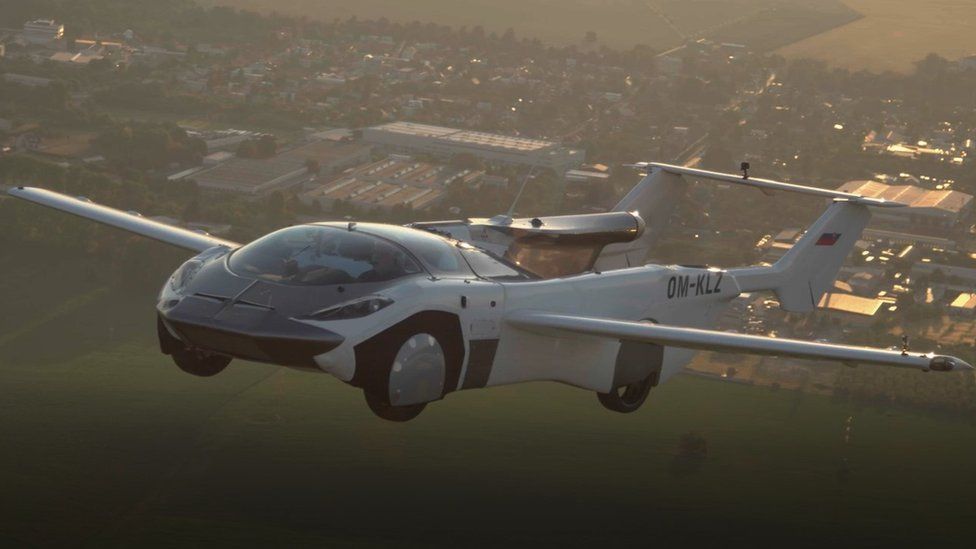James Bond, a character in Ian Fleming’s fiction, has a special way of preparing for a special mission. He would be well-kitted with all the sophisticated tools to make his work easy, including spy glasses, weapon-tailored wristwatch and shoes, then a car that could fly in the air. This fictional flying car is now a reality.
The BBC’s report about this flying car manufactured by Prof Stefan Klein, is here reproduced.
A prototype flying car has completed a 35-minute flight between international airports in Nitra and Bratislava, Slovakia.
The hybrid car-aircraft, AirCar, is equipped with a BMW engine and runs on regular petrol-pump fuel.
Its creator, Prof Stefan Klein, said it could fly about 1,000km (600 miles), at a height of 8,200ft (2,500m), and had clocked up 40 hours in the air so far.
It takes two minutes and 15 seconds to transform from car into aircraft.
‘Very pleasant’
The narrow wings fold down along the sides of the car.
Prof Klein drove it straight off the runway and into town upon arrival, watched by invited reporters.
He described the experience, early on Monday morning, as “normal” and “very pleasant”.
In the air, the vehicle reached a cruising speed of 170km/h.
It can carry two people, with a combined weight limit of 200kg (31 stone).
But unlike drone-taxi prototypes, it cannot take off and land vertically and requires a runway.
There are high expectations for the nascent market in flying cars, which have long been heralded in popular culture as a visionary landmark of the future.
In 2019, consultant company Morgan Stanley predicted the sector could be worth $1.5trillion (£1tn) by 2040.
And at an industry event on Tuesday, Hyundai Motors Europe chief executive Michael Cole called the concept “part of our future”.
It is considered a potential solution to the strain on existing transport infrastructures.
‘Huge market’
The company behind AirCar, Klein Vision, says the prototype has taken about two years to develop and cost “less than 2m euros” (£1.7m) in investment.
Anton Zajac, an adviser and investor in Klein Vision, said if the company could attract even a small percentage of global airline or taxi sales, it would be hugely successful.
“There are about 40,000 orders of aircraft in the United States alone,” he said.
“And if we convert 5% of those, to change the aircraft for the flying car – we have a huge market.”
‘Really cool’
Dr Stephen Wright, senior research fellow in avionics and aircraft, at the University of the West of England, described the AirCar as “the lovechild of a Bugatti Veyron and a Cesna 172”.
And he did not think the vehicle would be particularly loud or uneconomical in terms of fuel costs, compared with other aircraft.
“I have to admit that this looks really cool – but I’ve got a hundred questions about certification,” Dr Wright said.
“Anyone can make an aeroplane but the trick is making one that flies and flies and flies for the thick end of a million hours, with a person on board, without having an incident.
“I can’t wait to see the piece of paper that says this is safe to fly and safe to sell.”


